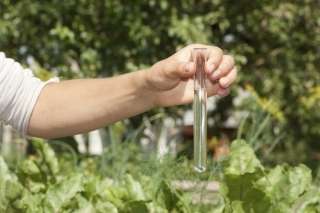Small quantities of silver can serve as an efficient catalyst to convert aldehydes to acids

A tiny bit of silver, combined with water and air, can convert aldehydes into acids efficiently—instead of the classical methods using stoichiometric amounts of expensive or toxic metal oxidants, according to a new study by McGill University researchers.
The findings, published March 27 in the journal Science Advances, could lead to a variety of possible applications in the chemical industry. The results also promise to advance the search for more environmentally friendly chemical conversion reactions using air as a green oxidant, said Chao-Jun Li, senior author of the paper and Canada Research Chair in Green Chemistry at McGill.
For the past two decades, researchers at McGill and elsewhere have been exploring ways to do away with chemists' traditional reliance on non-renewable petrochemical feedstocks, less efficient chemical transformations and toxic solvents. One important method has involved using water as a solvent.
More information: "Silver(I) as a widely applicable, homogeneous catalyst for aerobic oxidation of aldehydes toward carboxylic acids in water—'silver mirror': From stoichiometric to catalytic", Mingxin Liu et al, Science Advances, 27 March 2015. DOI: 10.1126/sciadv.1500020
Journal information: Science Advances
Provided by McGill University



















